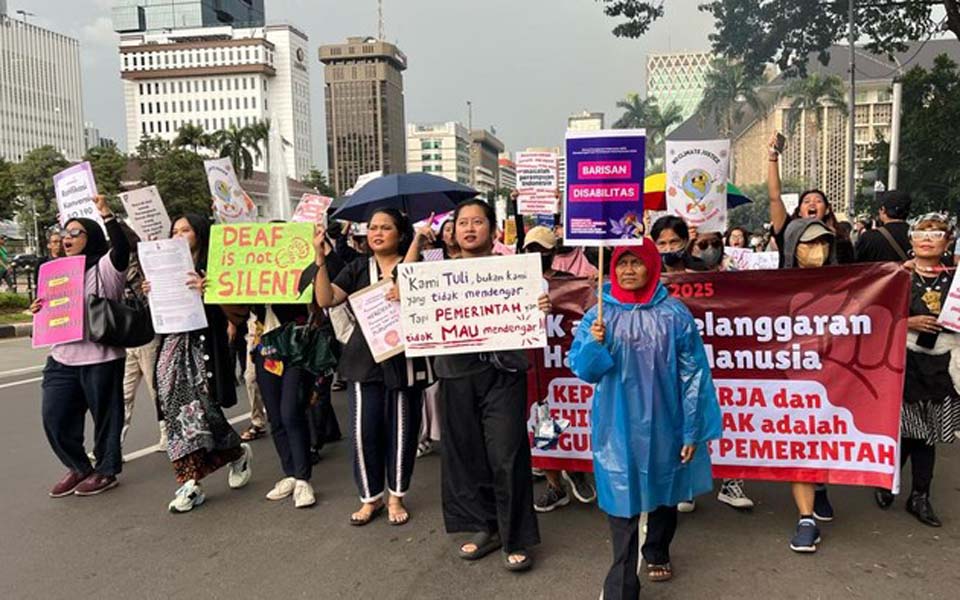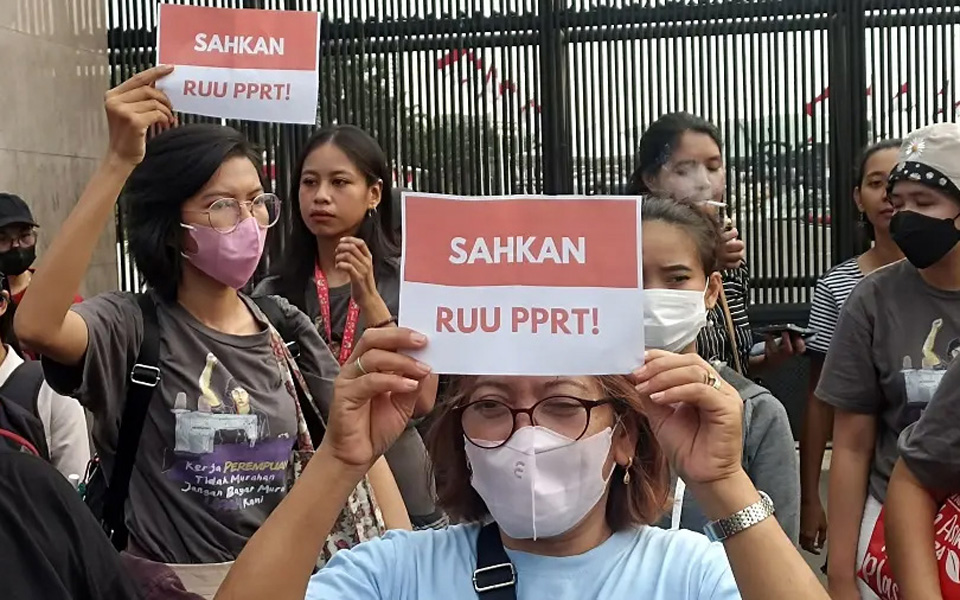Jakarta – International Women’s Day (IWD) is commemorated every year on March 8. This afternoon, scores of demonstrators from the Free Women National Committee (Komite Nasional Perempuan Mahardhika, KNPM) held a free speech forum at the Hotel Indonesia traffic circle in Central Jakarta.
The action, which was joined by scores of workers and women activists, took up the key issues that are yet to be resolved by the government such as women’s battle against rape and sexual harassment in Indonesia.
Action spokesperson Dian Novita said that up until this day the state has neglected to resolve cases of rape and has allowed sexual harassment to continue unabated.
“President Susilo Bambang Yudhoyono (SBY) has neglected the resolution of rape cases, likewise the parliament (DPR, House of Representatives) has allowed sexual harassment against women to occur”, Novita told journalists on Sunday March 4.
Moreover, Novita explained, the problem of violence that has become widespread of late has occurred because the state is also complicit in the rape of women.
Novita explained therefore that on March 8 Indonesian women will be ready to take to the streets. “We will go to the State Palace and convey a message to the administration of SBY and [Vice President] Boediono that the state is complicit in the rape of Indonesian women”, she said.
On March 8, 1917, women in Russia were for the first time given the right to vote by the Russian government. It was this milestone that started commemorations by women throughout the world or International Women’s Day.
In Indonesia meanwhile, we probably know Raden Ajeng Kartini as the milestone of upholding gender equality for women, which we usually commemorate as Indonesian Women’s Day on April 21. [simon salakory]
Notes:
Raden Ajeng Kartini was an Indonesian regent’s daughter during the Dutch colonial period who, through her letters home, outlined her dreams of a better life for women. She died aged 25 a few days after giving birth to her first child. A variety of myths have made the original Kartini a nationalist hero and feminist symbol. Hari Kartini (Kartini Day) is a public holiday dedicated to the memory of the turn-of-the-century hero.
[Negara Juga Memperkosa Perempuan – Seruu.com. Minggu, 4 Maret 2012. Translated by James Balowski.]















